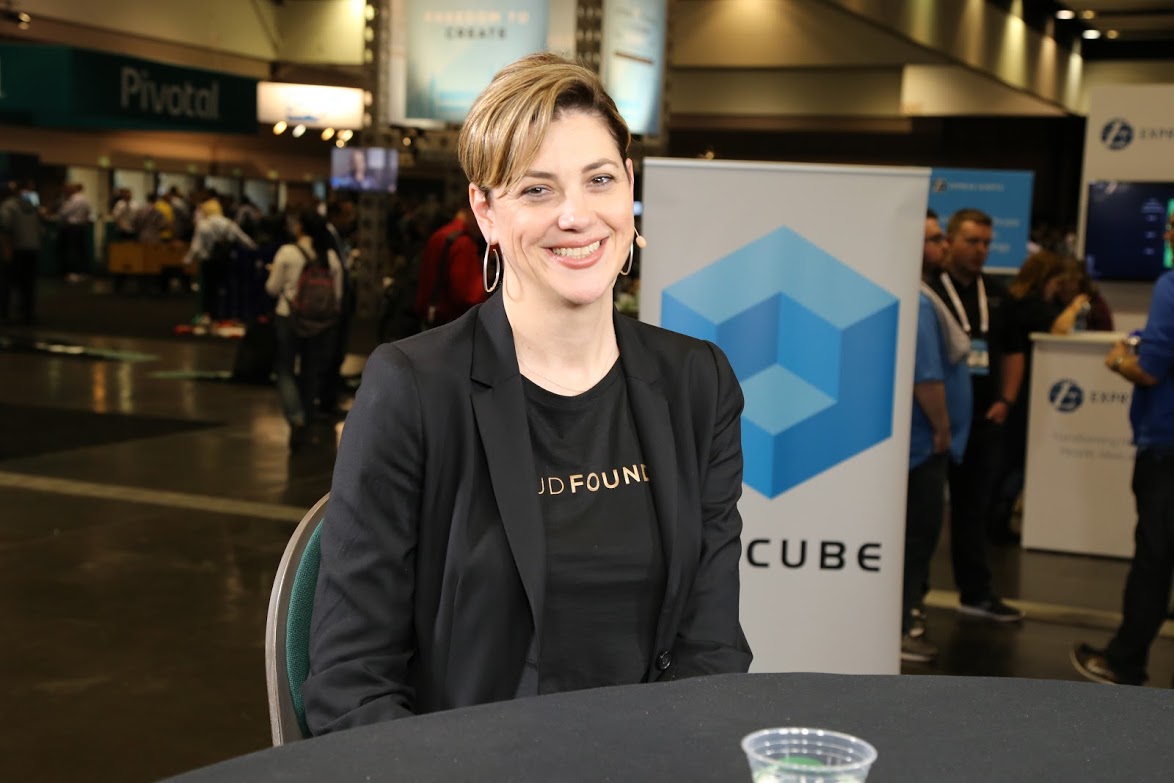 CLOUD
CLOUD
 CLOUD
CLOUD
 CLOUD
CLOUD
Finding and hiring talented developers is difficult and expensive; hiring cloud-native enterprise application developers, specifically, is even tougher, according to Abby Kearns (pictured), executive director of the Cloud Foundry Foundation, a nonprofit, open-source project that aims to make Cloud Foundry the leading application platform for cloud computing worldwide.
Scaling back feverish headhunting, some savvy companies are investing in training to grow their own developer staff, Kearns said in an interview during the Cloud Foundry Summit in Santa Clara, California.
“They’re no longer turning to outsourcing first or hiring first — they’re actually looking to train people first,” Kearns told Stu Miniman (@stu) and John Troyer (@jtroyer), co-hosts of theCUBE, SiliconANGLE Media’s mobile live streaming studio. (* Disclosure below.)
Many other users of the Cloud Foundry open-source development project are still going it the classic way, aiming to hire thousands of developers over the next year or two, Kearns explained. Considering the dearth of enterprise developers versed in cloud-native best practices and application architectures, their goals are ambitious to say the least.
The Cloud Foundry was originally developed in-house at VMware Inc. and is currently owned by Pivotal Software Inc. It now has 64 members (including gold member Microsoft) and is doing its part to fill the skills gap with its Cloud Foundry Certified Developer program. Cloud Foundry has just made the course generally available, even offering it onsite at this week’s conference.
But putting staffers through a single developer-training program won’t transform a traditional business into Facebook overnight. To become digital to the core, a business’ entire culture has to become agile, iterative and integrated, Kearns stated.
Cloud Foundry user Express Scripts Holding Co., a pharmaceutical management service, reduced the time it took to deploy code from four months to four hours, Kearns said.
“If you’ re deploying code that quickly, the business has to be tightly integrated; what also has to be tightly integrated is that feedback loop with the customer and the user,” she added.
Seeing this cultural need for integration paralleled in technology itself, Cloud Foundry supports the Open Service Broker API (Application Program Interface), which lets users connect services to cloud-native platforms and applications.
The recent Pivotal announcement about Kubo, an open-source project powered by BOSH and started by engineers from Pivotal and Google Cloud, builds on this with Kubernetes container orchestration management, Kearns explained.
Watch the complete video interview below, and be sure to check out more of SiliconANGLE’s and theCUBE’s independent editorial coverage of Cloud Foundry Summit. (* Disclosure: TheCUBE is a paid media partner for Cloud Foundry Summit. Neither Pivotal Software Inc. nor other sponsors have editorial control over content on theCUBE or SiliconANGLE.)
THANK YOU